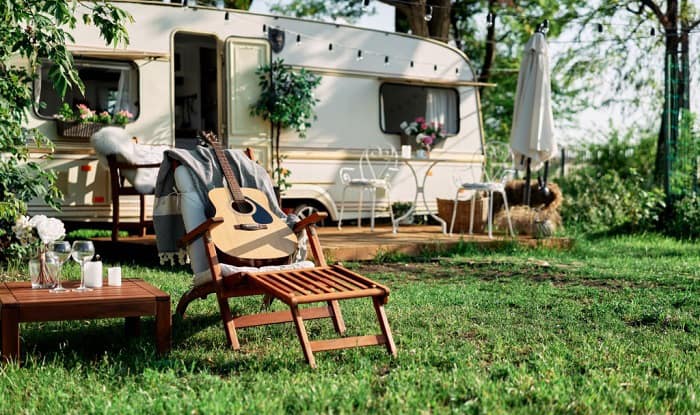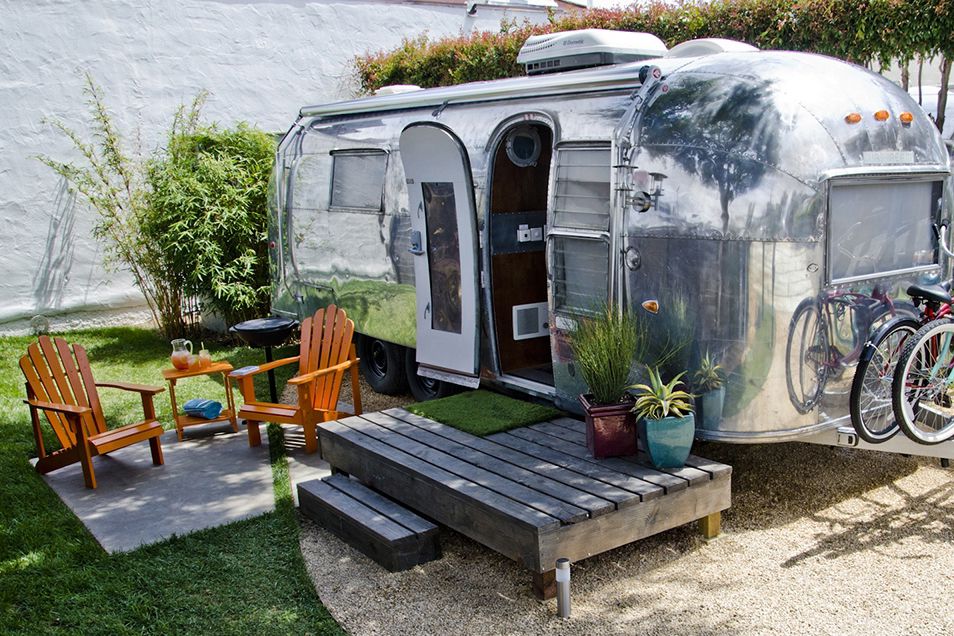Can You Live in an RV on Someone else’s Property?
Tiny homes are all the rage these days.
They’re cute, affordable, and don’t require much in the way of upkeep. But at the end of the day, tiny homes do share a lot of similarities with full-sized homes, especially in terms of land obligations and the inability to move around often.
 Source: riversidetrailer.com
Source: riversidetrailer.com
Enter the RV.
With an RV, getting a much-needed change of scenery is as simple as starting the engine, picking out your next destination, and setting yourself up in a cozy spot.
Or is it?
The legality of living in an RV is a bit of a gray area. For example, do RVs qualify as tiny homes? Can you live on someone else’s property in an RV? If so, will you be recognized as a legal tenant? Does the property owner need a special permit to allow you to stay there?
This article will seek to provide answers to these often-murky questions.
Knowing Your Location
Technically, it’s against the law to use an RV as a full-time residence in all of the 50 nifty United States, whether it’s in your own backyard or a friend’s. That specific rule comes from the Housing and Urban Development Department (HUD), which specifies that an RV isn’t intended for permanent occupancy.
That said, many localities, such as Florida, South Dakota, Texas, and Washington State, have rather lax regulations when it comes to this sort of living arrangement. In these places, you’re not likely to run into trouble unless someone files a complaint with the local authorities.
Most states also have loopholes that make it more or less legal to live in an RV indefinitely, provided it’s being used as an “accessory dwelling unit” and meets all the normal housing standards required for mobile homes. Unless your friend or family member is willing to pursue permits and utility hookups for your setup, you’re unlikely to meet this requirement while RVing in someone’s backyard.
Of course, all towns, counties, cities, and states do things a little differently. It’s important to study the precise wording of the codes that pertain to your neck of the woods, or the area where you intend to drop anchor long-term.
Ensuring Access to Roads and Utilities
Having traversable roads to navigate is a must not only to get where you’re going without difficulty but to make sure that first responders and other personnel can reach you quickly and easily in the event of an emergency.
Then there are things like water and electricity. Most RV enthusiasts get these amenities by hooking up to nearby homes (with the owners’ permission) or public utility lines in places like RV parks and campgrounds.
If a landowner agrees to share utilities like water and electricity with you, they may see fit to charge you a flat rate or a percentage of their monthly bill that reflects your individual usage.
These figures should ideally be documented in detail in a formal rental agreement or contract signed by both parties. A formal rental agreement is legally binding, which may offer peace of mind. However, if your landlord is breaking federal, state, or local laws or ordinances in renting land or sharing utilities, the agreement may be null and void.
Finding a Place to Park Your RV
When it comes to choosing a home base for your RV, your best bet is to ask a close friend or relative if you can post up on their property. Should you decide to go this route, be a courteous guest and keep the noise and other distractions to a minimum.
Alternatively, there’s the option of placing or answering an ad for a property tenant.
This can be a somewhat dicey course of action—you could end up being neighbors with your new best friend, or you could find yourself living in fear of a creepy landlord.
Try to use good judgment when determining whether the person whose hospitality you’ll be exploiting is someone you’d want knowing where you sleep.
 Source: rvtalk.net
Source: rvtalk.net
Working Out Rent and Utilities
Devising a rental arrangement that meets the approval of both parties can be tricky, even if you’re living on your family’s property (perhaps especially if you’re living on your family’s property).
Your host might be happy to give you a simple flat rate for rent and utilities each month, or they might prefer that you pay your exact share of the utilities used on top of whatever amount they think is fair for rent.
Other factors may also come into play, such as property taxes. Some landowners elect to pass on a portion of their property taxes to their tenants in order to defray their own expenses.
Regardless of the exact terms, it’s recommended that you and the property owner draw up a formal contract or rental agreement. That way, you’ll have all the particulars in writing, and you’ll be able to refer back to them at any point in the event of a dispute.
Respecting Federal and State Laws
Both federal and state laws prohibit the use of RVs as full-time living spaces.
The reasoning behind this is that RVs are not generally considered permanent dwellings, per HUD. Under normal circumstances, they’re intended for periodic recreational or vehicular use, not continuous occupancy. At least, not without continuous travel and stays in RV parks or campgrounds, too.
You might be able to find a landowner generous enough to let you stay on their property, but in doing so, they would technically be violating the law. This is true regardless of how up-to-code your vehicle is. There are no permits that make it legal to live in an RV on someone else’s property indefinitely.
Even so, lots of people get away with doing just that in various states without ever being fined or evicted. It’s essentially a matter of finding a willing host and an out-of-the-way spot where you’re unlikely to be noticed by local law enforcement or accosted by unwelcoming neighbors.
But the bottom line is that no state officially allows people to live in their RVs on someone else’s private residential property.
Is it Worth It?
At the end of the day, you’re the only one who can answer that question.
If the idea of living the simple life in a modest space of your own on borrowed land, then by all means, chase your dreams. But know that in some cases, the experience will be more hassle than it’s worth.
While full-time RV living is practical for many people, it becomes less practical — albeit cheaper — when you stop traveling and decide to stay in one place. Though your expenses may be lower while living in a recreational vehicle on someone else’s property, there are no guarantees it will last.
Ultimately, if it’s your friend or family member, camping in their backyard could lead to a falling out in the relationship, which may be the worst-case scenario overall.
